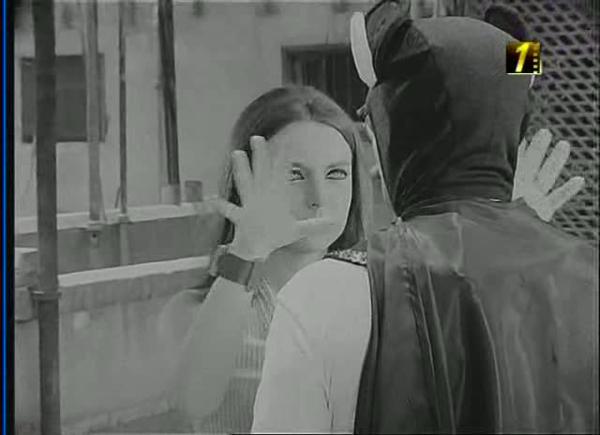El Attaba Gazaz
aka Glass Threshold
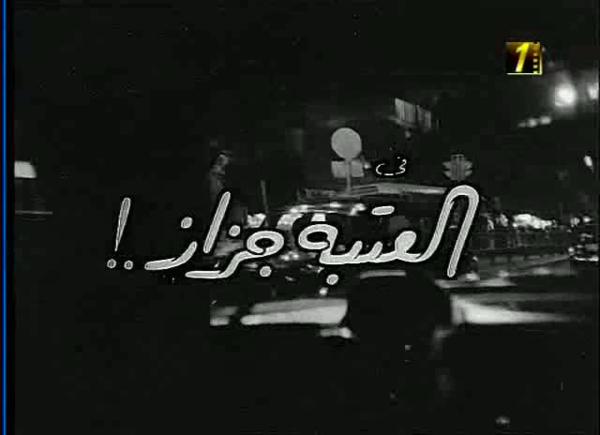
1969![]()
Directed by Niazi Mustafa
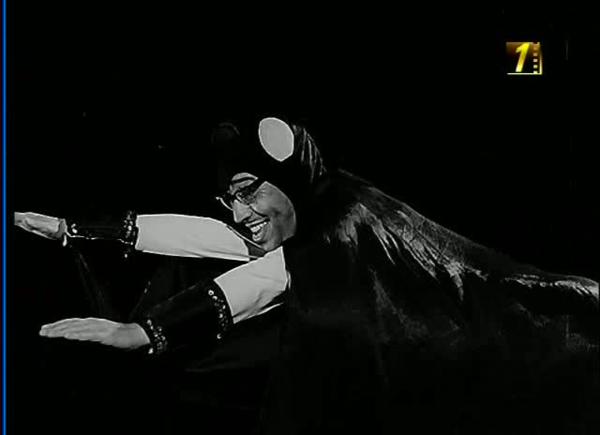
Egyptian comedy films date back to at least 1919’s Madam Lolita, with popular early comedians in the silent era being Ali al-Kassar and Nagib al-Rihani. Both had roots in the local improv theater scene (called al-masrah al-murtajal) and most of the story was just goofball antics around a loose plot. Rihani was fond of stories involving class displacement, Salama Fi Khayr (Salama is Fine) featured an errand boy mistaken for a sultan. Rihani died in 1949, and by the late 1940s Egyptian comedy had shifted to musical comedies.
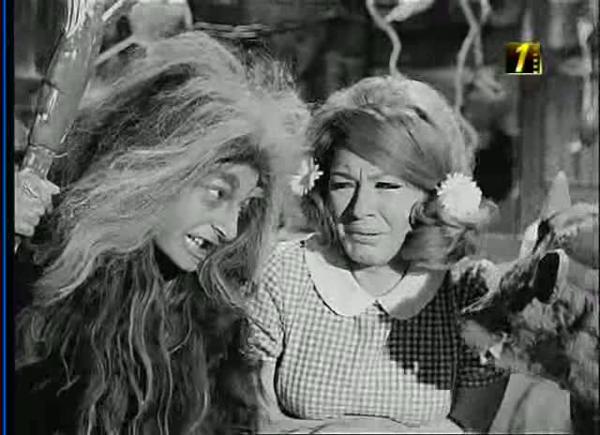
Another important name in Egyptian comedy is Ismail Yasin, who made his film debut in 1939. His exaggerated physical comedy propelled him to fame, and by the 1950s his name was used in the titles of the films he starred in, such as Ismail Yasin in the Army (1955) or Ismail Yasin in the Wax Museum (1955). Some of his films were outright copies of Abbot and Costello (Haram Alek aka Ismail Yasin Meets Frankenstein (1954)) and he starred in what is arguably the first Egyptian scifi film, A Trip to the Moon Many of Yasin’s works were scripted by his mentor, Abo El Seoud El Ebiary, who was said to have written over 500 films, examples being al-Zawja Raqam 13 aka Wife No. 13 (1962) and Mirati Mudir ‘Am aka My Wife is a General Director (1966),
1963’s A’ilat Zizi (Zizi’s Family) is a standard generic romantic comedy featuring an actress trying to convince a director to get her a role in his film. She doesn’t get the part, but does win his heart. And that would probably be the tagline in America. Fatin Abd al-Wahhab directed, and it starred Suad Husni and Fouad el-Mohandes, who is important because he stars in this film. Also starring in this film is el-Mohandes’s then-wife, Shwikar, and they worked together in many comedic films covering several genres including westerns and gangster films.
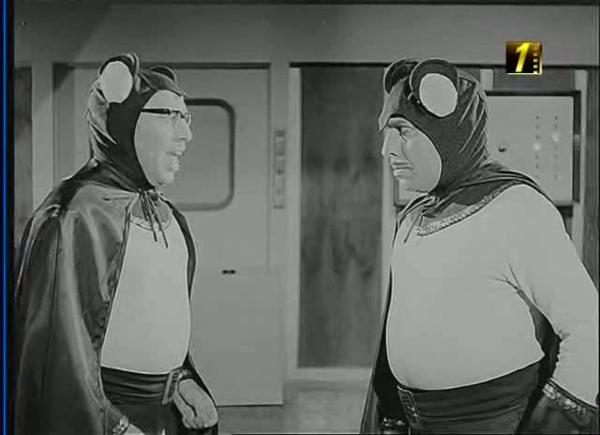
By the 1970s, Egyptian cinema was on a decline due to increased government control, and comedic films became one of the few ways to speak out. But that is a tale for another movie review’s infodump. Some of the artists and movie names above you might see spelled different ways thanks to the liberal translation methods of Arabic to English.
Fouad el-Mohandes (فؤاد المهندس aka Fuad al-Muhandis) was born September 7, 1924. After making a name in the theater world, he entered motion pictures in 1954. His most famous role is in Futin Abd Al Wahhab’s Aa’ilat Zizi (Zizi’s Family), then el-Mohandes went on to star in a series of films with his second wife, Shwikar, including Akhtar Ragul Fil Aalam (The Most Dangerous Man In The World), Ard El Nifaq (Land of Hypocrisy), and Sayedaty Al Jamila (My Fair Lady). Yes, that is an Arabic My Fair Lady. By the 1970s, el-Mohandes had returned to supporting roles, and he focused more on the theater. He formed his own troupe in Zamalek called the Fouad El-Mohandes Theater. He died in September 2006 at age 82
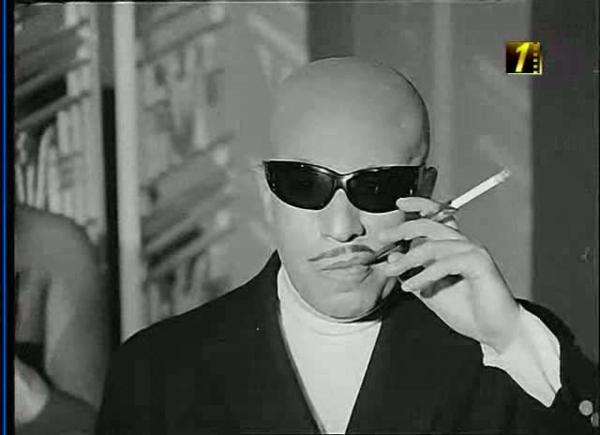
Shwikar (شويكار aka Shweikar or Showekar) was born November 24, 1936 and began acting in the Egyptian city of Alexandria before being discovered and working in Cairo. After beginning in dramatic roles, she eventually moved to more comedic roles and teamed with her second husband Fouad el-Mohandes for a series of films in the 1960s.
El Attaba Gazaz is the beginning of our Batmania! series, where we look at Batman-ish films from around the world. Why is El Attaba Gazaz in this series? Because one of the characters dresses up as a Batman inspired character during a musical number, and there is more Batman costume hijinks later in the film. Sadly, it isn’t a masked hero film, but it is as close as we can get from Egypt. When I first found out about this film, I freaked the heck out trying to find out what its name was, as the name wasn’t apparent. After some prime rib Googling, I figured out the title and ordered a disk off of eBay. It arrived, complete with a bonus greasy thumbprint on the DVD. And the store misspelled my name so badly I did not think it would be humanly possible to get it so wrong. But they also somehow turned part of it into “Imam” so now I am a religious leader in the world of Islam. So expect some random jihads by the end of the week.
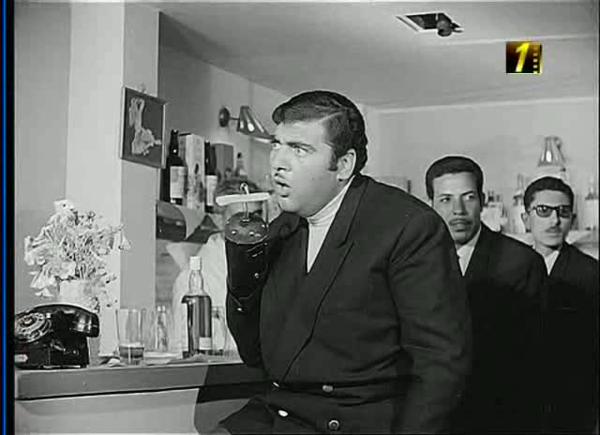
El Attaba Gazaz is filled with the standard spy film joke tropes…communication devices in all sorts of random objects, secret doors, disguises, fake deaths, identical strangers, night clubs, hypnosis, goons with hooks for hands, goons with eyepatches, and turncoats. Technically, the film looks ambitious and manages to keep some of its more bigger scope images in the context of musical numbers, giving the film a charming edge. But the boom mike fairly obvious is many scenes. And the cheap Egyptian DVD doesn’t have subtitles, but here at TarsTarkas.NET, we don’t need no stinking subtitles. The character names are guesses based on my limited Arabic speaking ability.
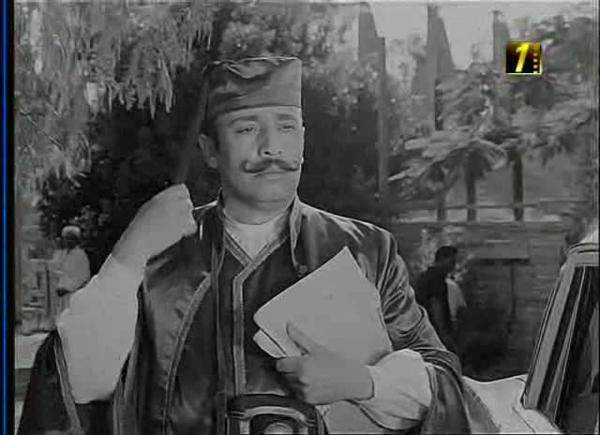
Egyptian films feature songs, in case you were wondering. Like a lot of older foreign films, much action takes place in nightclubs. This can been seen in American films in the 30s-40s, but by the 1950s television had taken over the land and America had become the land of couch potatoes. The potatoization of Egypt and Turkey happened at some time in the 1970s, thus the large amount of nightclubs still in movies in the late 1960s.
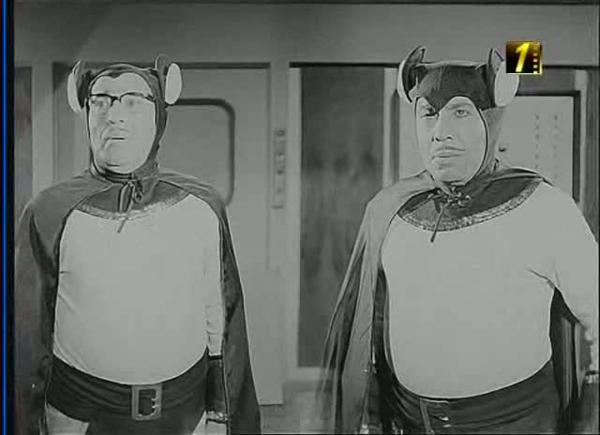
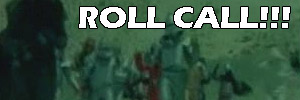
|


